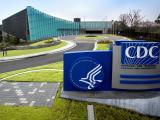Oct 14, 2003 (CIDRAP News) Some of the world's leading experts on biological weapons and public health will meet in Geneva, Switzerland, Oct 21 and 22 for an international conference on the threat of a bioterrorist attack involving smallpox.
"The event includes an overview of the current threat, detail on policies being pursued by different governments, perspectives on how a smallpox outbreak could develop and the science of how to defend against it," says a statement on the conference Web site.
Called "Smallpox Biosecurity: Preventing the Unthinkable," the meeting is supported by a grant from Acambis, the British company that produces smallpox vaccine for the US government.
Among the roster of speakers and panelists are Dr. D. A. Henderson, former director of the global smallpox eradication program and now principal science advisor to the US Department of Health and Human Services; Ken Alibek, a former leader of the Soviet Union's bioweapons program and now executive director of George Mason University's Center for Biodefense; Peter Jahrling, senior research scientist with the US Army Medical Research Institute of Infectious Diseases; and Ron St. John, director-general of Health Canada.
The first day of the conference will include a workshop designed to point up the challenges that policy makers would face in the event of an epidemic on a global scale. The workshop will be patterned after the "Dark Winter" exercise of 2001, which featured a fictional covert smallpox attack in the United States. The session will explore the problems of interagency and intergovernmental collaboration, the economic effects of a smallpox epidemic, and the task of acquiring and communicating accurate information. "The exercise will tackle politically sensitive issues that have been left unaddressed," the organizers say.
Following are some of the other specific topics the meeting will address:
- The likelihood and possible effects of a smallpox epidemic
- Techniques of smallpox surveillance
- Coordinating defense and health groups in the event of a smallpox outbreak
- Smallpox preparedness policies in the United States, Europe, and elsewhere
- Second-generation smallpox vaccines
- Reporting of adverse events related to smallpox vaccine
- New developments with attenuated vaccines




















